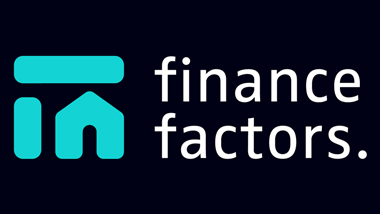Buying a New Build
Owning a home that is brand new and not previously lived in can be a very attractive option, particularly if you can personalise the property with various fittings and features. However, if you are considering buying a new build property, it's crucial to do your research. Investigate previous developments by the developer, visit sites, and speak to residents about their post-build experiences. Ensure the developer adheres to all relevant Codes of Standards and Quality, such as the Consumer Code for House Builders and the New Homes Quality Code.
Compare developers and their incentives to find what works best for you. When you've selected your plot or property, carefully review the contract terms. Ensure it includes a short-stop date (an estimate of when the property will be complete) and a long-stop date (the final date by which the property must be completed). This helps you plan around your mortgage offer, which is generally valid for six months. Before completion, visit the property to ensure all agreed-upon work and fittings are to your standard. Start your snagging list to address any post-completion issues promptly.
What is a Self-Build Mortgage?
A self-build mortgage is a loan you take out to fund a property you are building yourself. Unlike standard residential mortgages, funds are released in stages as parts of the build are completed. This reduces the lender's risk and ensures the money is spent as planned. Typically, the first payment is made when you purchase the land, followed by payments at key stages such as laying the foundations, reaching eaves height, and completing the roof.
Self-build mortgages can be an excellent option for first-time buyers seeking a more affordable way to get on the housing ladder. There are two types of self-build mortgages:
Types of Self-Build Mortgages
Arrears: Payments are made after each stage of the build is completed. This type is ideal for those with considerable cash reserves to fund the project initially.
Advance: Payments are released at the start of each stage, making funds available when bills for labour and materials are due. This helps with cash flow and is better for those with less upfront capital. However, fewer lenders offer this type of mortgage.
Interest rates on self-build mortgages are typically higher than standard ones. Payments are generally made at stages such as purchasing the land, laying foundations, reaching eaves height, and completing the roof. For those self-building in a group or using a custom-build method, fund release may differ slightly.
Enquire today:
New and Self-Build Mortgages: Frequently Asked Questions
What is a new-build mortgage?
A new-build mortgage is a loan for purchasing a brand-new property. It often includes personalised fittings and requires thorough research on developers and contract terms.
What should I consider when buying a new-build property?
Research the developer's previous projects, visit current sites, speak to residents, and ensure the developer adheres to relevant quality codes. Review contract terms, including short-stop and long-stop dates.
What is a self-build mortgage?
A self-build mortgage is a loan for funding a property you build yourself. Funds are released in stages as the build progresses, reducing the lender's risk.
What are the types of self-build mortgages?
There are two types: arrears, where payments are made after each build stage, and advance, where payments are released at the start of each stage.
Why are interest rates higher for self-build mortgages?
Interest rates are higher for self-build mortgages due to the increased risk and complexity involved in funding a property build in stages.
How can Finance Factors help with new-build and self-build mortgages?
Finance Factors provides expert guidance on the entire mortgage process, from researching developers and reviewing contracts to understanding self-build mortgage stages.
What is the importance of short-stop and long-stop dates in a new-build contract?
Short-stop and long-stop dates help you plan around your mortgage offer by providing estimated and final completion dates for the property.
What is a snagging list in new-build properties?
A snagging list is a checklist of issues or defects to be addressed before finalising the purchase of a new-build property, ensuring all work and fittings meet agreed standards.
Finance Factors is here to take the FAFF out of Finance.
Phone: 07785 954074
Address: 2 Kingsbroom Court, Kingswood, Maidstone, England, ME17 3ST
Email: kbl@financefactors.co.uk

YOUR HOME MAY BE REPOSSESSED IF YOU DO NOT KEEP UP REPAYMENTS ON YOUR MORTGAGE OR OTHER LOANS SECURED AGAINST IT.
-
Finance Factors is a Trading style of Finance Factors LTD who are an Appointed Representative of Advice Solutions LTD which are Authorised and Regulated by the Financial Conduct Authority. The Financial Service Register Number is 961681.
The Financial Conduct Authority does not regulate some forms of Buy to Lets.
There may be a fee for mortgage advice. The precise amount will depend on your circumstances, but will be agreed with you before proceeding.
Finance Factors is a Limited Company. Registered Address: Finance Factors Ltd, 2 Kingsbroom Court, Kingswood, Maidstone, England, ME17 3ST, United Kingdom. Registered in England and Wales under number 15814885.
We always aim to provide a high-quality service to our customers. However, if you encounter any problems, in the first instance please write to the registered address above, email or call Finance Factors outlining your complaint, if we are unable to resolve this, you can take your complaint to an independent Ombudsman. Our advice is covered under the Financial Ombudsman Service (www.http://www.financial-ombudsman.org.uk/consumer/complaints.htm).
The guidance and/or information contained within this website is subject to the UK regulatory regime and is therefore targeted at consumers based in the UK. Some calls maybe recorded for training and monitoring purposes.